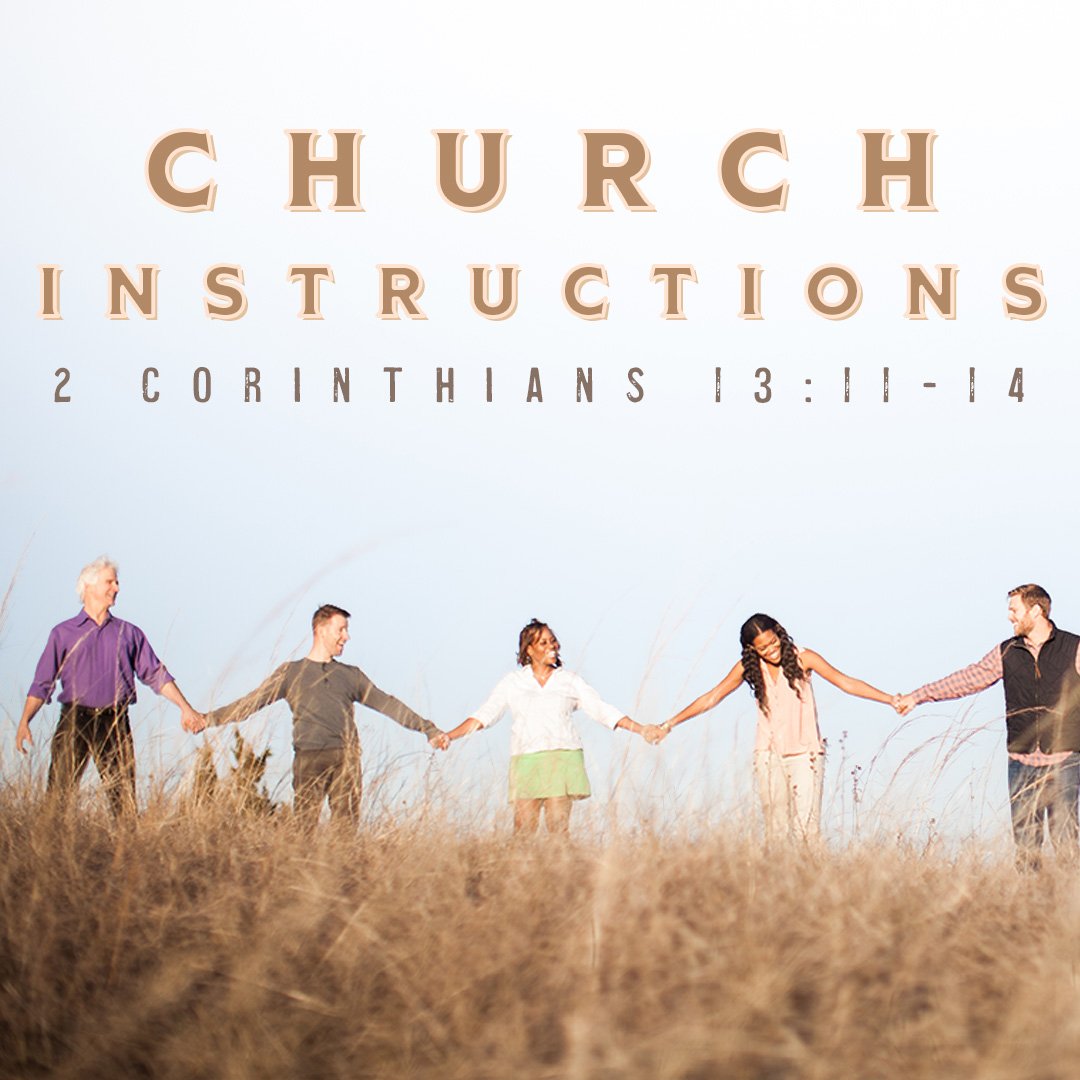All for the Kingdom
Sermon Podcast
Declare These Things, Titus 2:11-15
The gospel transforms believers into people who live righteously in the present world with anticipatory hope of Christ's return, proclaiming the gospel's good news with authority and boldness until then.
In this passage, Paul connects the instructions for how Christians are to live (2:2-10) with the why and how. The hope of the gospel transforms Christians before God. It also transforms how Christians live in this present age. The hope of the gospel is the fundamental truth that defines what the church is and how the church is to live in this world.
Lives that Testify to Truth, Titus 2:1-10
Belief that does not transform behavior is worthless. Theology that does not bear out in your ethics is pointless. Doctrine that does not inform and motivate your duty is meaningless. Sound doctrine is more than academic or theoretical; it is transformational. Every Christian must bear evidence in their behavior and character of believing and becoming sound in truth.
The teaching and preaching of sound doctrine is more than a transfer of information. The teaching and preaching of sound doctrine transforms the Christians who receive it. Sound doctrine transforms your heart, your mind, and your actions. And through this transformation, your life becomes a living testimony to the truth.
Seeing with God’s Perspective, 2 Timothy 1:1-2
As Paul writes these opening words of this final letter to the young pastor Timothy, he is not writing as a failure, in defeat, or even depressed by his circumstances. Paul writes with expectation and authority, knowing that his life is not his own and the kingdom of God is not dependent on his circumstances.
This is not an effort to put a positive spin on a bad situation. This is Paul writing and living according to God's perspective, not man's. To live faithfully and obediently to the Lord, you must live according to God's perspective, not man's.
Serve with Honor, 1 Timothy 6:1-2
1 Timothy 6:1-2 is not an endorsement of slavery, but it is an acknowledgment that slavery was part of the societal reality in which the church in Ephesus lived. Recognizing these realities, Paul instructs the church to live according to who they are in Christ, even in the brokenness of this world. In these verses, the Bible instructs Christians on how to labor for unbelieving masters and for masters who are fellow brothers in Christ.
The Church: Pillar and Buttress of Truth, 1 Timothy 3:14-16
The sad reality of the present-day church culture is the lost understanding of the church's witness to God's truth and the hope of the gospel. Every faithful church and every church member should be living witness in their community to the truth of God and the hope of the gospel. This is the heart behind Paul's instructions in 1 Timothy 3:14-16. This passage teaches who has authority over the church, its purpose, and its message.
Church Instructions, 2 Corinthians 13:11-14
As children leave the house, parents often give short final instructions. These departing words are not new information but reminders of important things. A mom might remind her children of something they need to do while away. A father might remind his children of his expectations of how they should behave while away. And often, parents tell their children one more time that they love them.
These closing words of Paul’s letter are similar words of instructions. These are not new teachings but reminders of important truths.
Costly Love, 2 Corinthians 12:11-21
The relationship of parent to child is one that Paul uses in this passage and is helpful in understanding the relationship between those who proclaim the gospel and those who receive it. Children do not always appreciate their parents' sacrifices and sometimes even rebel against their parents. What motivates all that parents do for their children is love.
In this passage, the Bible teaches how believers should respond to the gospel, the cost of ministry, and what motivates the preaching of the gospel.
Blessed by Fellowship, Romans 15:22-32
There are some places that you long to be. Maybe for you, it is at home or being with friends. These places and people refresh your soul. They offer you an opportunity to relax and be restored. Such places and people are both needed and desired.
As Paul closed his letter to the Romans, he expressed how he longed to be with his fellow believers. His longing was not just to have a meal or to be with friends (he had never been with the Roman church), but rather he longed to be with other believers who could (because of their shared relationship with Jesus) have fellowship with him.
The fellowship of believers is created to be a blessing to believers. Among the saints, we find the blessing of community, support, and prayer.
Power and Purpose, John 21:1-11
Many of the disciples were fishermen by trade before Jesus called them to follow him. After the dramatic events of the death and resurrection recorded in John 20, we find these men out on the water fishing again in chapter 21. They have returned what they knew before following Jesus. It almost seems like they are trying to return to normal. However, their routine was interrupted by the miraculous.
I think the real question the disciples were struggling with was what do we do now and how do we do it? Jesus had some lessons still to teach these fishermen. He wanted them and us to know by what power the purposes of God would be accomplished.
The Church's Ministry, Ephesians 4:11-16
When someone goes to school to learn a trade, the ultimate goal is to become proficient in the skill well enough to employ it to earn a living. When students choose their degree program in college, the intended purpose is to prepare for a career in a specific field.
Training for a job or studying for a future career are worthy endeavors and have a sense of anticipation for what is to come after the training is complete. However, if your goal were only to train but never to employ your skill, it would become a purposeless endeavor.
A ministry is something that serves as an agency, instrument, or means. The church's ministry is to equip and mature the saints for faithful service to the Lord. Ephesians 4:11-16 points to the role that church leaders have in equipping the saints and the command on all the members of the church to mature and grow.
The Church's Worship, Ephesians 5:15-21
Presently there is great confusion about the church’s ministry of worship. Today, many think of the worship ministry of the church as a product of consumption. Thus the main determining factor of attendance for many is founded on personal preferences of music style, preaching style, and formality or informality of the church’s liturgy. Attendance is not understood as an integral part of one’s spiritual life but rather an option equal to all other calendared events.
In this passage, Paul is writing to the church as to how they are to live and interact with other believers in the church. Verses 19 and 20, reference the public worship of the church and the whole passage is instructive for our understanding of worship.
The Church's Testimony, Matthew 18:15-20
Church discipline is a subject that makes many uncomfortable. This may be because the church has not been faithful or consistent, some have used the cover of church discipline to abuse, or so little is understood about it, that there is much misunderstanding. Regardless of how uncomfortable it may cause us to be, we must reckon with the fact that this is the teaching of Jesus. May our heart's desire be to faithfully obey the word of God - even the parts that make us uncomfortable.
The Church's Foundation, Matthew 16:18-19
This passage follows a very significant moment in the life of Peter. Jesus had asked his disciples, “Who do you say that I am?” Peter replied with the powerful confession: “You are the Christ, the Son of the living God.” In verses 18-19 Jesus responds to Peter’s confession. Jesus declares that on this confession of Peter, Jesus will build His church. In this passage, we see that the church is founded on Jesus, sustained by Jesus, and is the testimony of the gospel.
Gather Together, Hebrews 10:24-25
As we have lived through the COVID-19 pandemic and all difficulties that it has brought to the church, we have had to think critically about what it means to be a church gathered for worship. Can the gathering of the church be substituted with a virtual alternative? Is it required for the church to be together? What is the difference between hearing preaching live from the pulpit and watching or listening online? Hebrews 10:24-25 calls us not to forsake the gathering of the saints. It compels us to continue in our faithfulness and gives us a deeper understanding of why we gather and the holy significance of our gathering together as a church.
Parables: Faithful Stewardship, Luke 19:11-27
This is not the same parable as the parable of talents. Here Jesus is distinguishing between three types of people. The ten servants represent those who profess to serve Christ, but all who profess are true. So the three types of people represented in this parable are:
Faithful followers – these are represented by the servants who invest and earn a return with the nobleman’s money
False followers – these are represented by the servant that does nothing with the nobleman’s money
Enemies of Christ (unbelievers) – these are represented by those who oppose the nobleman’s rule
I am going to give the majority of my attention to the first two groups.
Be about the Father’s will
Faithfulness pleases God
Disobedience reveals falsehood
















